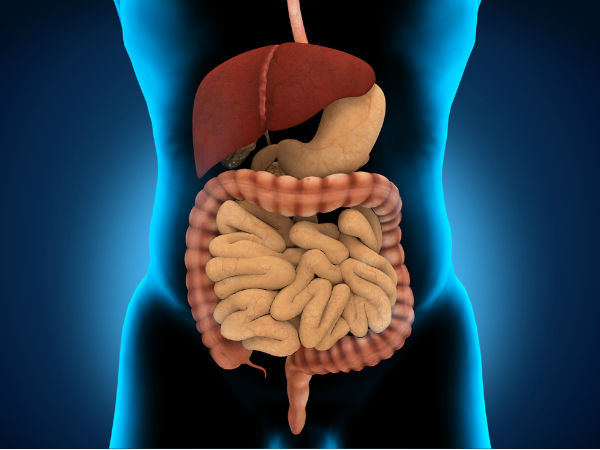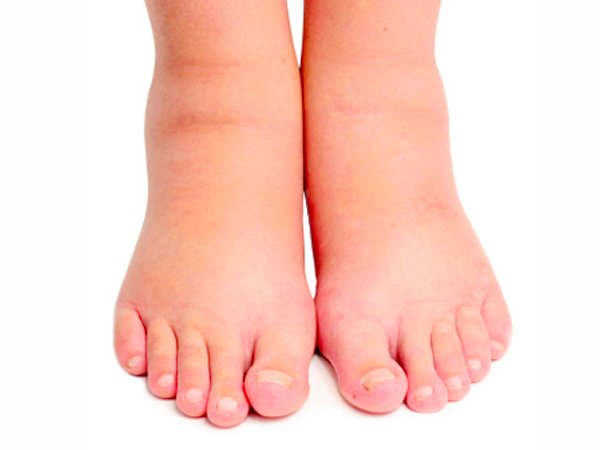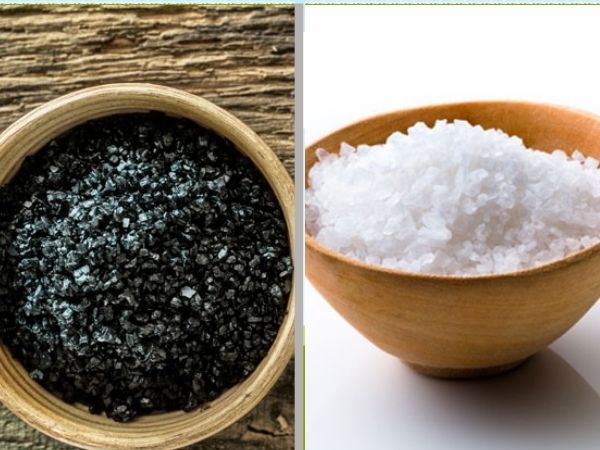
1. May manage blood pressure
Black salt is low in sodium as compared to commercial table salt, which is high in sodium. And because of this black salt may be a great alternative to table salt for those who are looking to reduce their sodium consumption, especially people with high blood pressure [2].
Consuming high amounts of salt has been associated with high blood pressure, stomach cancer and bone loss [3] [4].
 10 Amazing Health Benefits Of Asafoetida (Hing)
10 Amazing Health Benefits Of Asafoetida (Hing)

2. May improve digestive health
Black salt also claims to improve digestion and lower other stomach-related ailments like constipation, acid reflux, bloating and gas. However, further scientific research studies are needed to support these claims.

3. May prevent muscle cramp or spasm
Black salt may help regulate muscle functioning and relieve painful muscle cramps due to the presence of potassium in it. Potassium is an essential mineral that helps in regulating muscle contractions and prevents muscle cramps [5].
 Plums: Nutrition, Health Benefits And Ways To Eat
Plums: Nutrition, Health Benefits And Ways To Eat

4. May aid weight loss
Noted studies have shown that increasing the intake of salt can increase the risk of obesity [6] [7]. And black salt on the other hand, contains low amounts of sodium which may help in managing weight. However, there is limited study available to support this point and further studies are needed.

5. May reduce water retention
Water retention occurs when excess water builds up in your body, especially in the abdomen, legs and arms leading to swelling, bloating, stiffness in the joints, weight gain, aching of affected body parts and changes in skin colour and puffy skin. One of the causes of water retention is consuming too much of salt so, switching to black salt which is naturally low in sodium can help reduce water retention. However, further research is needed to understand the exact mechanism responsible for this benefit [8].

6. May enhance skin and hair health
As black salt contains a significant amount of minerals, it may help improve skin and hair texture. Anecdotal evidence suggests that black salt may boost the growth of your hair and detoxify your body to remove all toxins, thereby enhancing hair and skin health, respectively.
 Chestnuts: Nutrition, Health Benefits And Ways To Eat
Chestnuts: Nutrition, Health Benefits And Ways To Eat

Black Salt Vs Table Salt
Black salt is different from table salt in terms of manufacturing process and taste. Himalayan black salt is naturally pink in colour and traditionally it was combined with other herbs, spices and seasoning and heated to high temperatures.
READ RELATED: Coronavirus UK: More 'weird' proof smokers may be at less risk
Today, many manufacturers make synthetic black salt by mixing sodium chloride, sodium sulphate, ferric sulphate and sodium bisulphate with activated charcoal and then it is heated to create the final product.
On the other hand, table salt is obtained from large rock salt deposits and then processed and refined, stripping off most of the trace minerals.
Black salt is less processed and less likely to contain harmful preservatives or additives and table salt, on the other hand contains anti-caking agents which is harmful to health.
Black salt has a unique earthy, smoky flavour, whereas table salt has a salty taste.
Common FAQs
Q. Can we eat black salt daily?
A. Yes, you can consume black salt daily; however, moderation is the key regardless of its type.
Q. What is the use of kala namak?
A. In Ayurveda, black salt is considered a cooling agent and it’s used to treat a wide range of ailments, including muscle cramps, gas and heartburn.
Q. Is black salt and sendha namak same?
A. Black salt is not rock salt (sendha namak). Sendha namak is a highly crystalline salt that is made by evaporating sea water.
Source:










